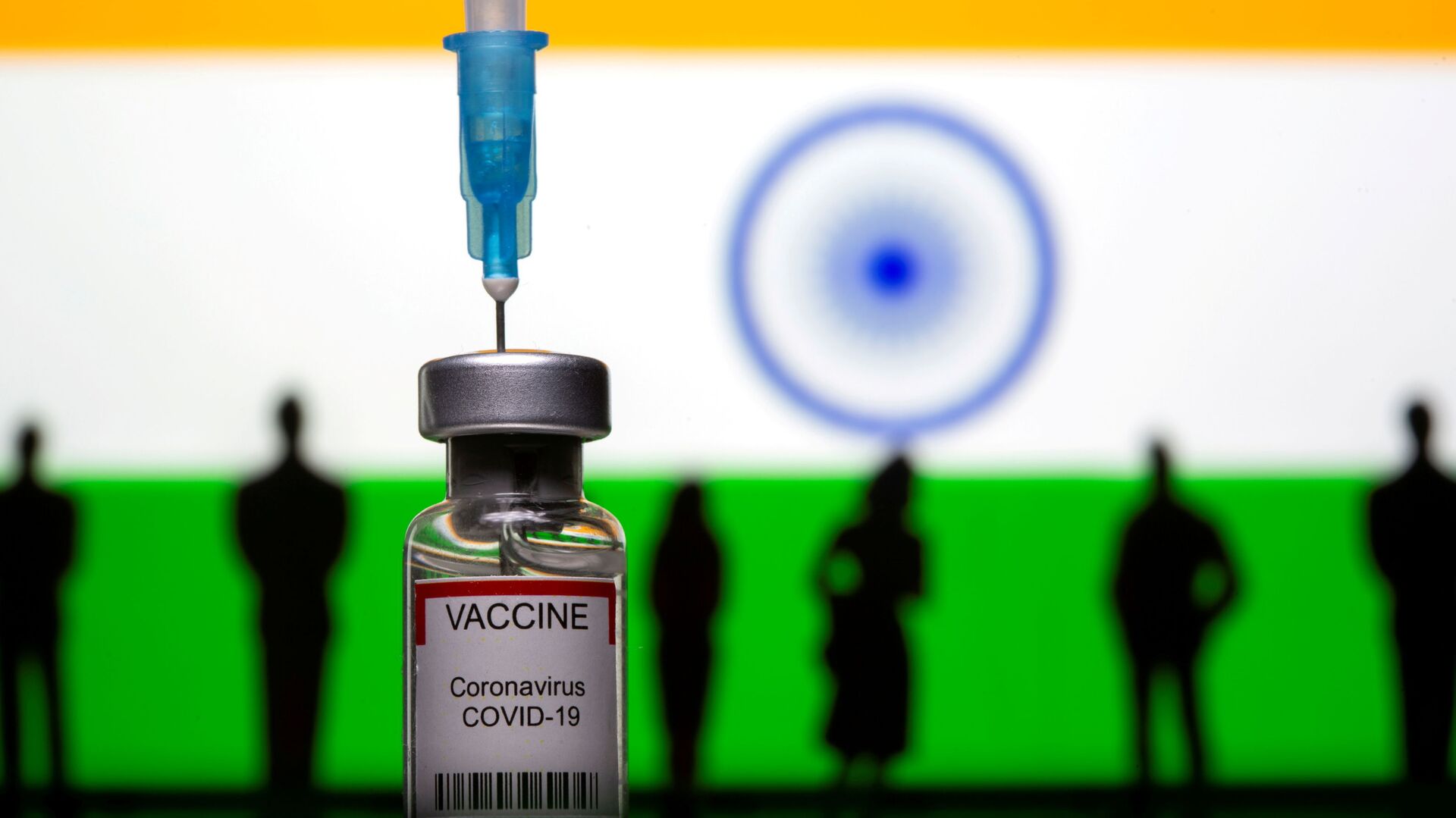India's federal opposition party Congress on Tuesday questioned the Prime Minister Narendra Modi-led government's ability to meet its goal of vaccinating one billion people by December 2021, arguing that the current pace of daily inoculation is not enough to achieve the ambitious target.
"Only 3 million Indians were being vaccinated on a daily basis in April. In May, the average dropped to 1.6 million Indians. On 7 June, the vaccination rate again picked up to 3 million doses a day," pointed out senior Indian lawmaker and former federal Minister and Congress politician Jairam Ramesh.
"However, we need to administer 8 million doses a day from July through December to achieve the target of vaccinating a billion Indians by December," Ramesh argued.
The senior Congress leader was addressing a press briefing following remarks made by Prime Minister Modi in his public address on Monday.
In the speech, Prime Minister Modi announced a revision to the federal vaccination policy, as part of which all Indians above the age of 18 will be entitled to free COVID vaccination and the cost of the vaccination drive would be met by the federal government in it sentirety.
Under the new rules, the federal authorities would procure 75 percent of the vaccine supply from the companies and distribute it among the state governments. The remaining 25 percent of the vaccine supplies will be committed to private hospitals which could charge a commission not exceeding INR 150 ($2 a dose), Prime Minister Modi stated in his address.
The new policy kicks in from 21 June.
As per the previous vaccination strategy announced on 19 April by Prime Minister Modi himself, the federal authorities had tasked the state governments to procure 50 percent of the vaccine supplies directly from the manufacturers in the open market.
These vaccines were to be used to inoculate people in the 18-45 age group. In the original vaccination strategy, the federal authorities entrusted themselves with the responsibility of only vaccinating people above the age of 45.
Soon after Prime Minister Modi’s address, the government claimed that it was striving to vaccinate the entire adult population of the nation, or nearly 1 billion Indians, by December 2021.
Prime Minister Modi’s government claims that it is on track to meet its goal of administering more than 530 million vaccine doses between January and July, with 1.3 more billion vaccine doses set to be procured between July and December.
Overall, the Indian federal authorities say that they are on track to have more than 1.8 billion doses of vaccine by December.
While India has so far granted Emergency Use Authorisation (EUA) to just three vaccine candidates—Covishield, Covaxin and Russia’s Sputnik V, Prime Minister Modi in his Monday speech said that vaccine supplies in the country will increase over the coming days.
“Seven Indian companies are producing vaccines in the country. Another three vaccine companies are trialling their jabs for domestic usage. We have also ramped up efforts to procure vaccines from foreign countries,” Modi said during his address.
‘No Clarity on the Roadmap’
At his Tuesday’s briefing, Ramesh also noted that there was “no clarity on the roadmap” of how the government meant to procure the vaccines and then distribute them “fairly” among the states, if it managed to procure doses to vaccinate a billion Indians.
Ramesh further argued against making 25 percent of the vaccine supplies available to private hospitals, stating that all Indians must be entitled to a free jab.
“Our research shows that 50 percent of the current vaccine supplies have been cornered by just nine hospital groups, which are predominantly based in big cities. This has put people in small towns and villages at a relative disadvantage,” he claimed.
The Congress politician also criticised the online registration app Cowin, arguing that residents of towns and villages might not be educated enough to register themselves for a vaccine.
Prime Minister Modi, in his speech, has ordered doing away with the requirement of registering oneself on the government app before being eligible for a vaccine shot.
As per the revised policy, only those vaccinating themselves at a private hospital will be required to register themselves on the Cowin app.



